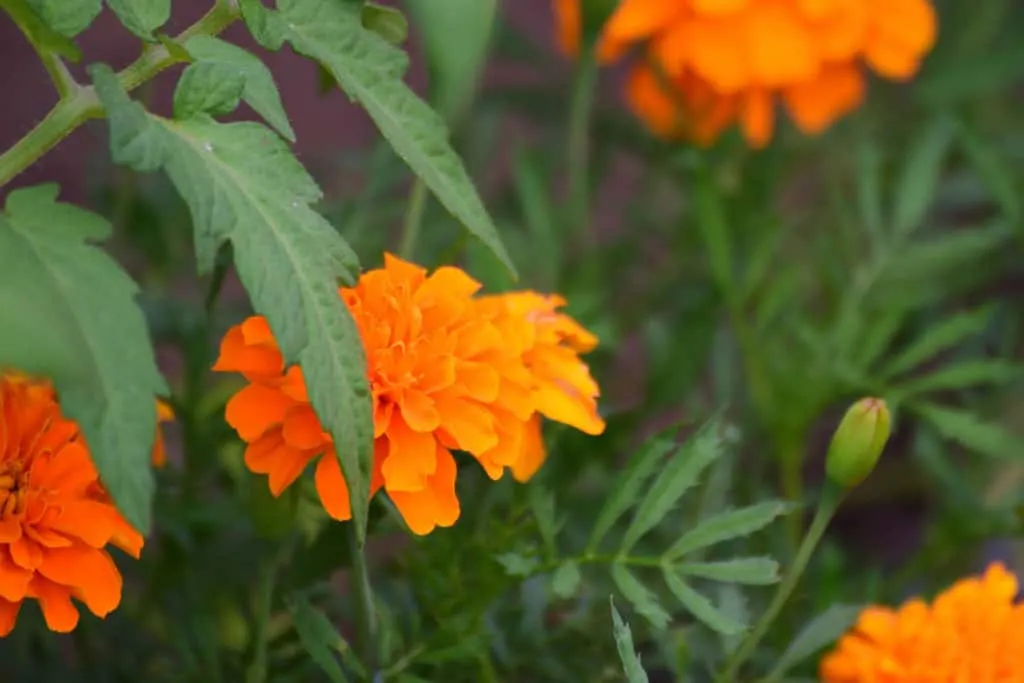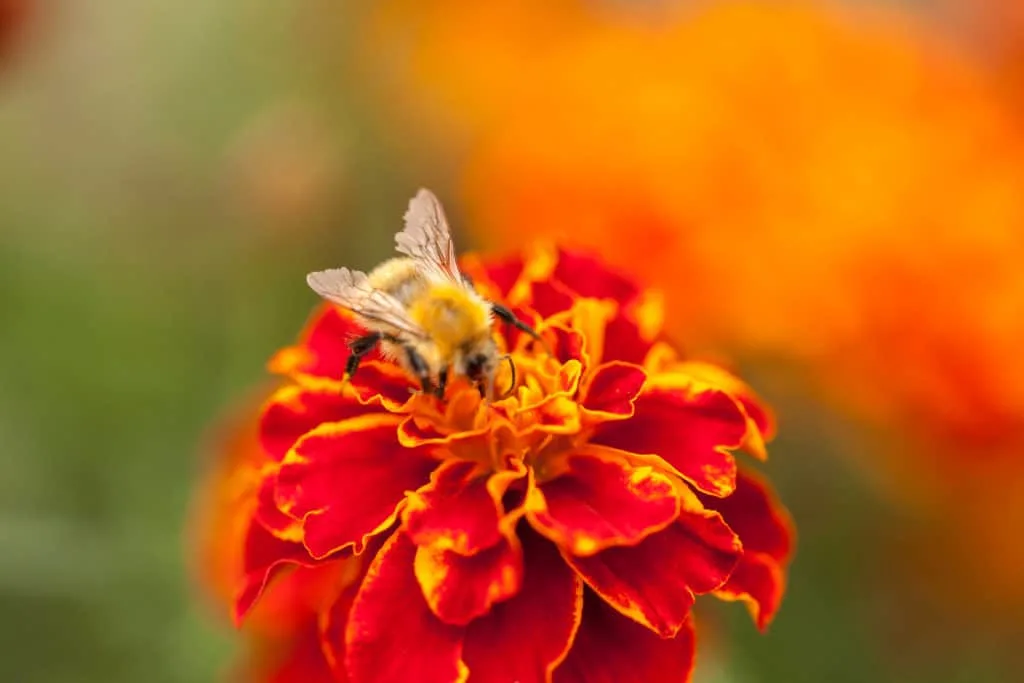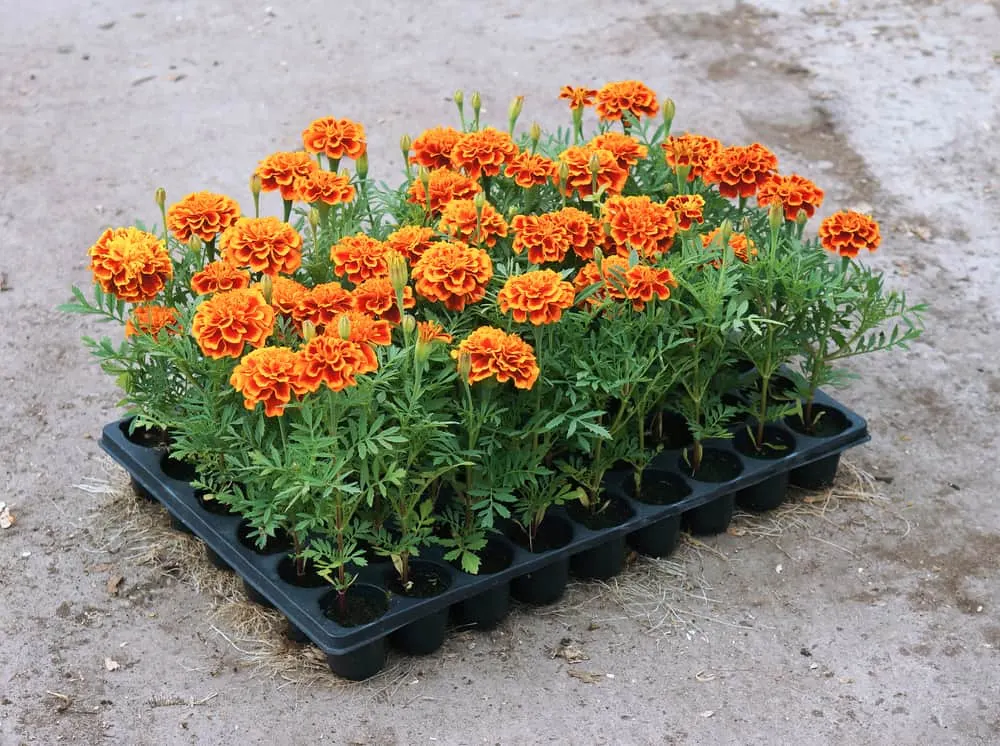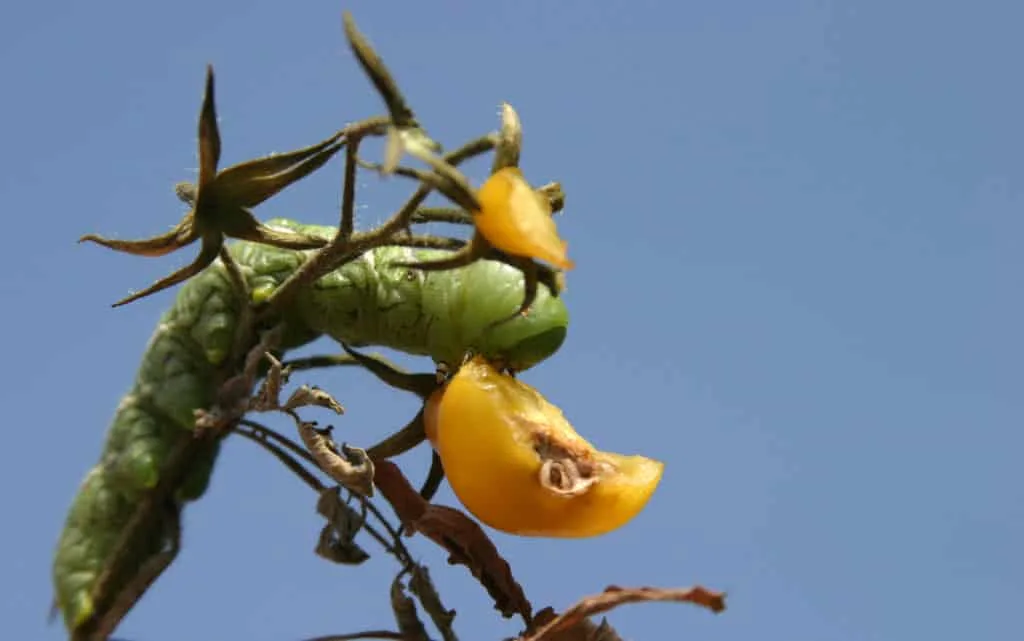While tomatoes are incredibly rewarding to grow, like everything else in life, they are not without their pitfalls.
We are not the only ones who love tomatoes. There are other animals, birds, insect pests, and soil-borne problems that also love these vibrant, delicious plants.
It is also true that tomatoes are loved by other plants. You can help develop beneficial relationships for them.
Companion Planting – Symbiotic Relationships

Maybe you have seen an example of a symbiotic relationship in a documentary or nature show. It might be a gorgeous, majestic sea turtle that visits a certain spot every year. Interestingly, many species of fish come out to clean it. Or, a giant, deadly shark that has little fish swimming in and around its mouth. And they are cleaning its teeth!
These are just two examples of unique symbiotic relationships in the wild.
Plants Do It Too!
Incredibly, plants have many attributes that help out their neighbors.
A plant might be a nitrogen fixer. This means it takes nitrogen from the atmosphere and makes it available in the soil, improving the nitrogen uptake for all plants that surround it.
Or a plant might have long, deep, tough roots that help break up the soil. This allows it to release nutrients, making them more available for more shallow rooted plants.
As with wildlife, some plants are not good friends. One plant may grow aggressively, soaking up all the available nutrients and water and spreading all over the place. This essentially smothers nearby, less aggressive plants. Another plant might attract deer or rabbits to the garden. Then the hungry herbivores don’t discriminate and eat other precious plants during the visit.
In the case of marigolds, they do many friendly acts in the garden.
5 Reasons To Grow Marigolds With Your Tomato Plants
1. Marigolds attract bees and other tomato benefiting insects.

Who doesn’t love beautiful butterflies, bees, ladybugs, and other beneficial little beasts that visit the tomato garden?
Great to aid pollination, yes! Not only that, many of the insects that marigolds attract help to keep insect pests at bay such as aphids and caterpillars.
2. Marigolds act as a “trap crop” for slugs and snails.

Slugs and snails love tomatoes. You may not even know they are there until you go to pick your juicy plump fruit. Then you find soft, squishy holes and the tell-tale slim trails left by these nocturnal robbers.
Luckily, they like marigolds even more making marigolds an effective “trap crop” for slugs and snails. The airy, fern-like marigold foliage make early morning search and destroy slug and snail hunting a breeze.
3. Marigolds deter animal tomato pests.

The strong odors that marigold plants make often deter other garden pests such as rabbits, deer, cats, and snakes. Okay, I don’t know that snakes eat tomatoes, but they can stay out of the veggie patch, as far as I’m concerned.
4. Marigolds help to keep soil healthy.
For the agricultural and home tomato grower, root knot nematodes can plague the tomato plants. They also bother some of their nightshade relatives such as peppers and eggplant.
Marigolds are extremely useful in this scenario. They trap and kill parasitic root knot nematodes. Plant marigolds thoroughly in areas known to be infested. Toxins in marigold roots seem to kill the nematode before it grows and reproduces.
5. Marigolds deter tomato worms.

There are many worms and caterpillars that love tomatoes. Large moths begin their life as the dreaded Tomato Hornworm.
The way marigolds help deter these pests is twofold.
First, their strong odor is thought to repel the moths, deterring them from laying eggs. Secondly, marigolds attract many beneficial insects including parasitic wasps which are harmful predators to tomato hornworms and other nuisance worms and caterpillars.



